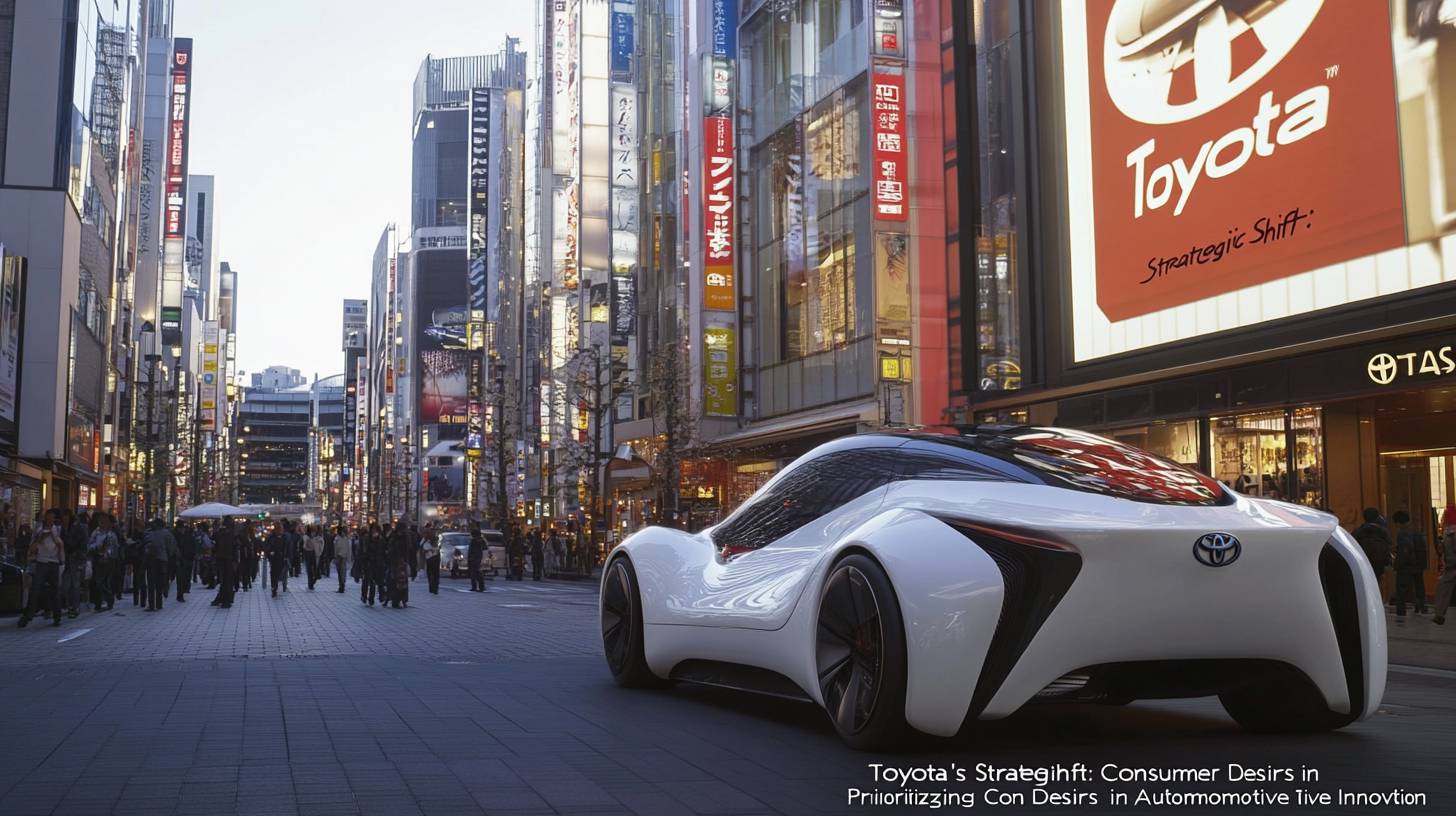
Toyota’s careful strategy regarding EVs
The Japanese automotive manufacturer Toyota, famous for its dependable and best-selling vehicles, has adopted a notably careful approach to fully electric vehicles (EVs). While rivals like General Motors, Kia, and Hyundai are swiftly broadening their EV ranges, Toyota has launched just one electric model: the bZ4X crossover SUV.
During a January 2024 event, Toyota’s chairman, Akio Toyoda, discussed the firm’s deliberate approach to EV integration. He estimated that battery-electric vehicles (BEVs) would secure no more than 30% of the auto market share. Toyoda linked this projection to infrastructural hurdles that many consumers might face. He indicated that the remaining 70% of the market would consist of hybrids, fuel cell vehicles, hydrogen-powered models, and classic internal combustion engine vehicles. Toyoda highlighted that consumer choices, not government regulations, would shape this market segmentation.
This strategy contrasts with the automotive industry’s broader efforts towards an electric-only future, as well as the anticipated moves from government authorities. Toyota’s method reflects a conviction that a varied assortment of powertrains will more effectively satisfy consumer needs, especially in areas where EV infrastructure remains underdeveloped.
Toyota’s hybrid-centered strategy
In spite of the worldwide shift towards electric vehicles, Toyota is reinforcing its hybrid approach, viewing it as a sensible response to existing market dynamics and consumer desires. The company intends to considerably enhance its hybrid lineup, capitalizing on its strong legacy of creating dependable and efficient hybrid cars like the Prius. This initiative is not merely about retaining market position but also about establishing Toyota as a frontrunner in the shift to more sustainable automotive innovations.
Toyota’s emphasis on hybrids represents a strategic choice that corresponds with its evaluation of the automotive market. The firm is convinced that hybrids present a more immediate and feasible approach to lowering carbon emissions, particularly in regions where EV infrastructure is still emerging. By transitioning the majority of its gasoline vehicles to hybrid systems, Toyota aims to provide consumers with options that deliver the advantages of electrification without the concerns of limited range and charging infrastructure that accompany fully electric cars.
In Australia, where electric vehicle adoption has lagged behind other areas, Toyota’s hybrid focus may resonate positively with consumers. The Australian market has demonstrated a strong inclination towards reliable and fuel-efficient vehicles, making hybrids an ideal fit. With models such as the RAV4 and Camry set to transition to hybrid-only variants in the near future, Toyota is well-positioned to capture a substantial segment of the Australian market, appealing to both eco-conscious buyers and those seeking economical transportation solutions.
Additionally, Toyota’s hybrid approach is economically beneficial. Hybrids necessitate less investment in research and development compared to fully electric vehicles, and they utilize fewer raw materials, helping to keep consumer costs lower. This is especially pertinent in the current economic landscape, where affordability is a significant consideration for many purchasers. Toyota’s internal evaluations, which emphasize the resource efficiency of hybrid vehicles, reinforce the company’s dedication to sustainable operations while ensuring profitability.
As Toyota advances its hybrid technology, it simultaneously gains time to enhance its battery-electric vehicle capabilities. This dual strategy enables Toyota to stay competitive in the shifting automotive landscape while gearing up for a future where electric vehicles may occupy a more significant role. For Australian investors and consumers, Toyota’s strategy presents an intriguing mix of innovation, sustainability, and practicality, establishing it as a business to monitor in the years ahead.

